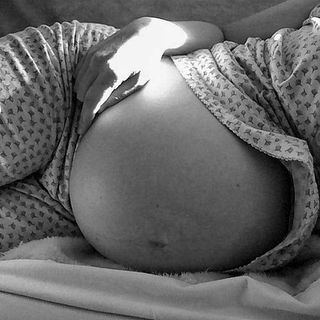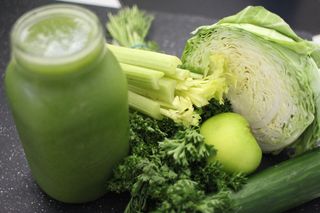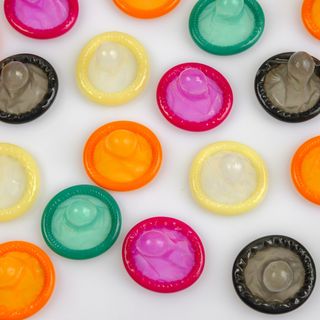
Untrending: Juicing Is Worse Than Useless
Despite the buzz, there’s still no scientific evidence to support this trend.

In Untrending, we side-eye the latest fads so we know what we’re getting ourselves into — and what (if anything) we’re getting out of them.
Juice cleanses aren’t particularly new. Nearly a decade in, the juice detox trend shows no signs of stopping. Websites still tout the health benefits of juicing; articles still chronicle the physical and mood changes of the people who do it. Not bad for a trend that, after years and years of study, still has no scientific proof of its health claims — and on the contrary, has quite a lot of research suggesting it’s actually unhealthy for people who try it.
Juice cleanses promise the moon: to detox the body, boost your immune system, lower cancer risk, improve digestion and help weight loss. Which makes juicing the perfect example of when something appears too good to be true.
Let’s look at the biggest promise of juice cleanses: that they detox the body, removing toxins that build up in your digestive tract and body that would otherwise only linger, latent and harmful. After nearly a decade of study, now, there is no evidence the average person is walking around with toxic build-up in their bodies; consequently, there is also no evidence that juicing has a detoxifying effect.
That’s because the body already has organs whose sole job it is to filter toxins from the blood: the liver and kidneys, and the digestive tract. Liver or kidney damage, and digestive problems, from certain diseases or genetic conditions might inhibit this process from working properly, but in such cases, one would require serious medical care, not a one-week juice cleanse. In any case, juice cleanses market themselves to the average person, who in all likelihood doesn’t need any help; their body is naturally self-detoxifying.
What juicing does do is typically lower the amount of calories you consume, which can result in weight loss at the start of such a regimen. But it’s not a particularly healthy or sustainable diet to pursue long-term or engage in repeatedly. Partly because studies show drinking juice doesn’t lead us to eat less, therefore the juice just provides extra calories.
“It’s also easy to consume large amounts of fruit juice quite quickly, meaning extra calories. And when calories increase, this can contribute to weight gain,” Emma Elvin, the senior clinical adviser at the non-profit Diabetes U.K., told the BBC.
So juicing does do one thing really, really well: it pumps you full of sugar.
Related on The Swaddle:
Zero‑Calorie Artificial Sweeteners Linked to Diabetes, Obesity
Juicing aims at upping one’s intake of fruit and vegetables — and that’s an admirable and healthy aim — but it doesn’t quite achieve it in a healthy way. Squishing a fruit or vegetable to juice significantly reduces the vitamin, antioxidant, fiber and nutritional content you’re receiving from it, compared to simply eating the whole item; for instance, most of the health benefits of an apple lie in its peel, which is typically not included in apple juice. The same is true for an orange.
What you’re left with, when you juice, is basically the fruit or vegetable’s sugar — which, when separated from its fiber and other nutrients, is more akin to eating honey or refined sugar, than the ‘healthy sugar’ of a whole fruit. Without the fiber of the whole fruit, this sugar is absorbed more quickly into the blood stream, causing blood sugar spikes that the pancreas must manage by releasing insulin. Over time, if you juice enough, the pancreas’s insulin response can wear out. This is why juice consumption has been linked to a higher risk of developing type 2 diabetes in multiple studies.
While vegetable juices don’t have the same degree of effect on blood sugar, they’re still just not as healthy as, well, actually eating a vegetable. That’s because juicing, whether with vegetables or fruits, removes all of the insoluble fiber found in a whole fruit or vegetable. Insoluble fiber, in addition to helping manage your blood sugar, helps you feel full (and thus, eat less), maintain regular bowel movements (the actual process of detoxification), keep your levels of bad cholesterol in check, and lower your risk for cardiovascular problems.
Related on The Swaddle:
To be clear, certain juices have been linked to good health outcomes. For instance, some findings suggest kale juice might be beneficial in lowering cholesterol levels and thus reducing the risk of heart disease. But substituting a glass of kale juice occasionally in place of something less healthy in your diet is the best way to reap this possible benefit; going on a juice cleanse — either short and intense, or long-term and steady — is not.
Like everything else, juice is best consumed in moderation. When it’s consumed too much, or exclusively, it can do more harm than good. Ultimately, if you’re wanting to make your diet healthier, or more conducive to weight loss, you’re better off doing it the old-fashioned way: through eating whole fruits and vegetables.
Liesl Goecker is The Swaddle's managing editor.
Related


Is it Possible To Breastfeed Premature Babies?
